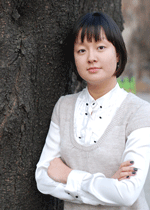 |
The committie announced a new initiative for English education called, "The English immersion education plan," which demands all classes in public schools to be taught in English. Against this backdrop, the nation has gone into a state of confusion,including students, teachers, private English academies, and government officials.
The intention behind this policy is understood by many: Since we are living in an international society where English works as a tool for mediating different cultures, studying English will definitely benefit many sectors. It also follows that English classes will run better when they are completely taught in English.
The crux of this issue lies in checking procedures and infrastructures with which to implement such national project. We must question if we are ready to carry out this very plan by year 2013. Is this worth all the money invested to recruit qualified English teachers? As far as what I know and what I've read, affiliates on the spot are showing worrisome views about this policy.
Not having to look to far, why not apply this to universities, the very microcosom of Korean society? University could be described as a place with students who have received a relatively high degree of education. Yet, students are struggling to catch the words of professors, much less comprehend the class materials. Other dilemmas such as whether or not to teach classes of Dept. of Korean Language & Lit. in English have also surfaced. So far, the outcomes are not satisfactory.
I appreciate the government's endeavors to promote policies for the overall strengthening of our country. Still, questions remain. Why the hurry? What about carrying out several more case studies, especially within Korean universities?
Currently, Yonsei Campus is also burdened with the hot potato of English classes. Yonsei Univ. has decided to divide students according to their English levels and run separate classes for each group, and is meeting strong criticism from the students as a result. Even a school faces such a drastic confusion with one policy.
I would like to express my surprise as to how a country could turn so turbulent over the English language. I am truly worried that Korea might always be following some other country's footsteps. It is imperative that our country's interest about English be de-emphasized to other aspects for a long-term advancement of our society.
Kim Ji-yun
jycecilia@yonsei.ac.kr

